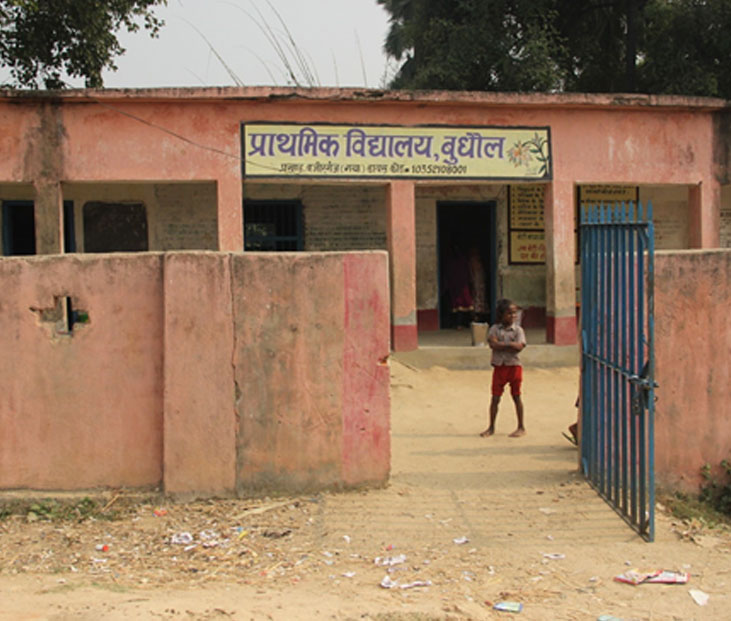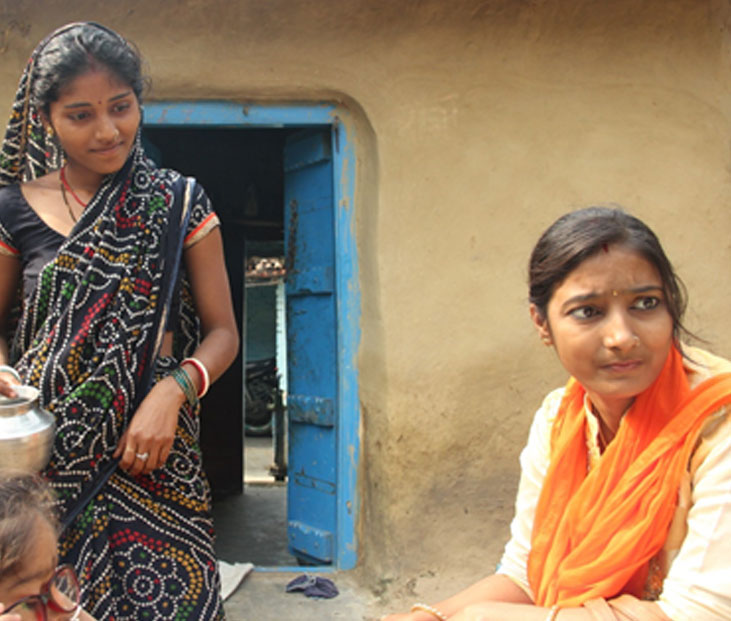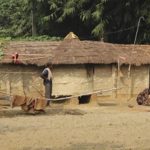HEALTH
Dasrath Manjhi, popularly known as the Mountain Man, testifies the fact that sustained efforts move mighty obstacles. Known for his heroic mission of single-handedly carving out a path through a huge mountain that obstructed the mobility of his village, he made a long- lasting impact on the lives of villagers around him, in many ways. Overcoming obstacles, physical or social, appears to be the norm of the land.
Village Bodhul with a population of 1200 is situated a few kilometers from Manjhi’s Gahlaur village, in Wazirganj block, two women – Kanchan Devi, the village ASHA and Jully Kumari, a CARE India facilitator work diligently to carve out new paths for themselves, their family and the community.
Defying social norm
Working women are unfamiliar and to a certain extent, unacceptable in a community, traditionally accustomed to child marriage and teenage pregnancy. A notion that is widely held is that early pregnancy yields more kids, that would mean more helping hands at work, be it on the farm or brick kiln.
The designated role for women has been child-bearer, caregiver, and housekeeper. “The idea of educating the girl child has never existed. People are opening up to the idea as they notice people like us.” says Jully, 30, mother of one.
In their own lives, Jully and Kanchan have vigilantly shown resistance to these socially ascribed duties and roles. In their voices, there is a zealousness about their work that is hard to ignore. “I was married off young, but I refused to stay at my husband’s home till I finished my graduation. My mother and in-laws did complain a lot. Both my husband and I finished our studies – only then did we decide to start a family” says Kanchan Devi, 24, mother of two.
Gently yet steadfastly untangling socially-embedded misconceptions
Jully and Kanchan enrolled in their respective work roles in January 2018 as part of a pilot project ZLPP (Zero and low parity) aimed at young women between the age of 15 -24, to increase awareness about delaying the first birth and spacing subsequent pregnancies and encourage the use of modern contraceptives amongst newlyweds.
This is the first professional experience for both. A major challenge experienced was the apprehension in approaching households and initiating discussions about family planning.
“Not so long ago, children were seen as bhagwaan ka deyn (God’s gift). When I joined the programme I knew it was related to family planning, when I attended the training only then I realized the task at hand. It made me extremely hesitant and awkward. The thought of going to an unknown family to tell them to stop having children or delay pregnancy seemed intrusive as it is a highly personal matter. Some women have misinterpreted our advice as dissuasion to not sleep with the husband” says Jully.
“The fixation with a male child exists. When a woman has two children, and if she hasn’t had a boy she and the family will want more children” mentions Kanchan. “Whenever a new bride arrives in the village, we observe if she is underage and requires counseling. We visited her household 2-3 days after her arrival. Some households presume the ASHA will talk to her and exert a “negative” influence on a new bride” she adds
The risk of being perceived as noisy and interfering by the village was one challenge, scorn and rebuke from their own families was another.
Through the “Social Analysis Action” training by CARE India, ASHAs were asked to re-shape their household duties. Kanchan says “We were made aware of the imbalance that has existed for ages. Today, women work both at home and outdoors. She is still expected to cook and clean. The husband simply goes out for work and has no responsibility.” Such notions triggered tensions in her household.
After the training, Kanchan came home and asked her husband, Mahesh, to take up housework as she felt she was extremely burdened. This shocked and angered his family as it is unheard of. ” They chided me and said what nonsense have you learnt in the training?”. For 2-3 days I refused to do any household work, and that’s how my husband started sharing the household chores” recounts Kanchan.


Forging trust, instead of imposing information
Training sessions conducted by CARE India have armed the otherwise reticent Kanchan with the confidence, communication, and self-presentation skills to conduct home visits successfully.
Jully points out that post-training Kanchan has become visibly more assertive that has helped in building trust in the community.
“When I introduce myself as ASHA Didi, it works as a reassurance. I inform the family that I have come to talk to women with no or one child on how to plan pregnancy in a way that keeps her health better. Most families were okay with that, as I seem sincerely invested in the well-being of the mother-to-be”. Jully adds the innate trust in the ASHA facilitates her entry into the household and takes part in family planning discussion.
Working in tandem to foster constructive dialogue
“Our first step is to sit down with the mother-in-law and figure if she had issues with us meeting the daughter-in law. Mostly we did not face resistance in this village.“Acchi baat batane aaye hongi” (Must be here to tell something useful) is how they perceive our visit now” states Jully.
Newly-wed brides come from other villages, known only to the family she’s married into. Sometimes, the family is skeptical that the bahu speaks to anyone from the village, including the village ASHA.
“The initial ice-breaking happens through me. I’m perceived as an outsider who will not talk about their family issues with other villagers. They feel I’m a visitor, unlike the ASHA who is an insider. The village culture is such that a new bride doesn’t interact much with villagers”
Finding an ally within the household, gaining respect within the community
In most cases, the mother in law has welcomed their entry into the household. Many of them have experienced or witnessed the dangers of pregnancy at an early age, so they are aware of the consequences.
Kanchan explains “Sometimes the mother has had to have a “bada operation” (Caesarian) or had a stillborn baby. A lot of money is spent if the pregnancy is not properly planned. That’s why they are keen we counsel newlyweds on contraception and planned pregnancy.”
Making women realize their right to choose
Jully proudly states “We have been able to make them understand it’s their choice, not God will that decides the number of children they have”
She elucidates the impact the program has had “Many women have started using the modern contraceptives methods, especially after we have shown them the basket of choice, we explain it all – yeh Antara hai, yeh Mala hain. We don’t push a particular method, we inform and the decision lies with the women which method to choose. The ultimate choice is in their hands. Some of them choose an injection every three months because they feel they will forget to take a daily tablet. We don’t oppose their choice but assure them of the choice they make. Every month, at least 2-3 get a Copper T insertion, some still have the fear it may cause cancer. Then ASHA steps in and vouches for its credibility”


Continuously inculcating self-reliance and personal accountability in their own lives
“Had it not been for this program, I’d be homebound?” says Jully “My husband used to pick and drop me. After a while, it struck me that if I am working, I should be the one responsible for my mobility and safety. If I am stepping out for work why bother my husband? I have learnt to travel alone for work”
Gauri, a beneficiary of the program and Kanchan’s neighbor, adds that the program has ensured Kanchan’s education that has a long-lasting impact on the entire village. Kanchan quips. “I used to work on a farm. The entire burden of the farm was on me. My mother used to nag me to ask my in laws to find me a better job such as private tuitions, teach in a local school, anything that would keep my mind occupied”
This exasperation with social dictates has given way for self-assurance and hopefulness. Both emphatically state the ZLPP has helped them comprehend gender inequality, encourage them to change their own household dynamics and most importantly invoke a new approach to family planning in their community.
Shaping themselves as a precedent
The demure Kanchan is determined to be a role model for the village.
The CARE India trainings have stirred a mindset shift in Kanchan
“After the training, I told my husband “ Agar samaj badalna hai, uske liye ghar badalna hai. If we both are at home, we’ll learn to share responsibilities. My kids see both parents sharing responsibilities. This sets a good precedent for them “Kanchan feels seeing her work to secure a better future for her kids gets noticed by the villagers and influences them positively.
Kanchan further asserts “Women have faced burden for so long. It’s time they are relieved of it. Men’s and women’s roles in society and at home should be equal. First women were not allowed to work, supposed to work and feed the family. Now we both work and raise our kids. For long, people in the village wanted a beautiful bride. Today, they want an educated bride-not fair, beautiful, tall. Looks aren’t the focus, education is. Today’s women run the family, not simply take care of it. At times when I have stepped out of the house for work, I have heard people murmur – if only we too were educated, we’d also be going out for work”
Jully sums the change she symbolizes with an anecdote “Today, as I was passing a village on my two -wheeler, an old lady stopped me and asked me where I was from and where I was going to? Then she looked at her granddaughter and said if you study well, you too can go out and work like her.”
About the program:
CARE India’s ZLPP program demands spreading awareness amongst newlyweds about delaying first birth, subsequent spacing pregnancies, and encouraging modern contraceptives. Working in ZLPP has made the workers self-reliant, comprehend gender inequality, reshape their household dynamics and most importantly, invoke a new approach towards family planning to become well-respected figures in their village.






